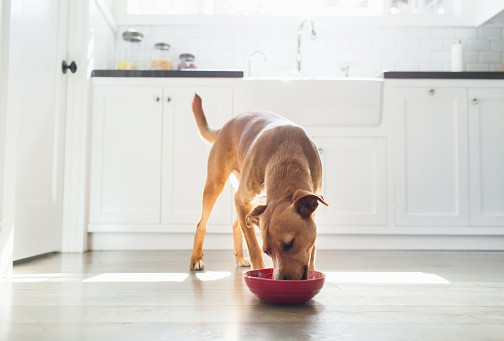Pet food these days come in all types, but one startup seems to want to innovate the industry more with their new products.

Bond Pet Foods, a Colorado-based startup, aims to introduce something new to the pet food market: lab-grown chow, reports Phys.org.
Their main goal comes from founder Rich Kellerman's apparent "disgust" over how livestock are treated on their way to becoming food items.
Aside from that, Kellerman also believes that modern pet food, which requires animal protein to make (and can only be acquired by slaughter), indirectly contributes to the global climate crisis.
In an attempt to not contribute to these two things at once, Bond Pet Foods aims to replace these animal proteins by growing them in a lab.
Kellerman also stated that he was convinced there could be a good market for lab-grown pet food if a company would be able to reliably and safely make it. And apparently, Kellerman's own dog Rumple seems to like his lab-grown chow.
A reporter from AFP was given a sample of the pet food, and upon tasting it noticed some hints of parmesan cheese and an overall nutty flavor.
Aside from this, Bond Pet Foods' product is also far cheaper to make.
By using fermentation tanks in their process, they cut the cost of sourcing the protein from $100 per 1 kilogram (2.2 lbs) to a mere $5 per kilogram.
Furthermore, the company's Chief technology officer hinted that the price can be even lower.
The lab-grown pet food, however, will still need to undergo around two years' worth of tests to ensure that it is safe and viable for pet consumption.
Pet Food In a Lab: How Was It Made?
Contrary to what some might think, lab-grown pet food has been around for a while now. And the science behind it is more or less similar to the one behind the production of animal product alternatives.
In the case of Bond Pet Foods, they made their products by taking blood from a pedigree chicken. They extracted DNA from it, inserted the DNA into a microbe, which was then added to a fermenter to produce the lab-grown animal protein.
The only issue with lab-grown pet food, however, is that animals can't eat them the way humans can eat animal product alternatives. That's because pets such as cats and dogs actually need meat to survive, writes The Smithsonian.
This is why full-vegan diets are extremely discouraged for dog and cat owners, because it's going to do way more harm than good.
Is the Livestock Industry Really That Bad for the Environment?
As a matter of fact, yes. Around 15% of the world's carbon emissions are due to the livestock sector. And the growing appetite for meat isn't helping much to cut down on these emissions too.
Perhaps Bond Pet Foods really is onto something here with their lab-grown pet food. Should the products pass the required tests, then it could contribute to a decrease in greenhouse emissions brought about by the global livestock industry.
This article is owned by Tech Times
Written by RJ Pierce




![Most Useful Google Chrome Keyboard Shortcuts You Need to Know to Improve Your Browsing Experience [2024]](https://d.techtimes.com/en/full/449047/most-useful-google-chrome-keyboard-shortcuts-you-need-know-improve-your-browsing-experience-2024.jpg?w=184&h=103&f=476d29fd60df70a67f6679f99a2ca6d0)